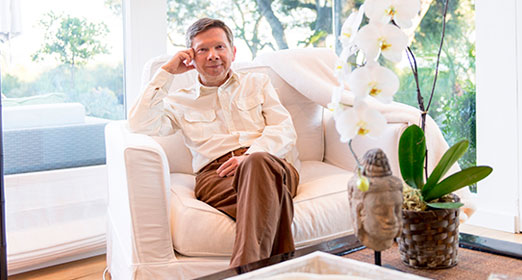by Ocean Robbins: Getting enough sleeps is very impportant for mental and physical performance…
If you noticed a few errors in the above sentence, you’re not imagining things. That’s pretty much what my typing would look like after a couple nights of sleep deprivation. One study showed that being awake for as little as 17-19 hours straight impaired mental and physical performance just as much as being legally drunk.
And we all know the unpleasant consequences of a poor night’s sleep. Whether you experience sluggishness, brain fog, or general malaise, the effects of not getting enough sleep can ruin your whole day. And when you don’t sleep well for long periods, this can really take a toll on your quality of life. And — as my family tells me — the quality of life of the people around you, too!
As it turns out, sleeping well is one of the most important things you can do for your physical, mental, and emotional health. And there are many ways you can design your everyday routine to sleep better at night.
Why Sleep Matters
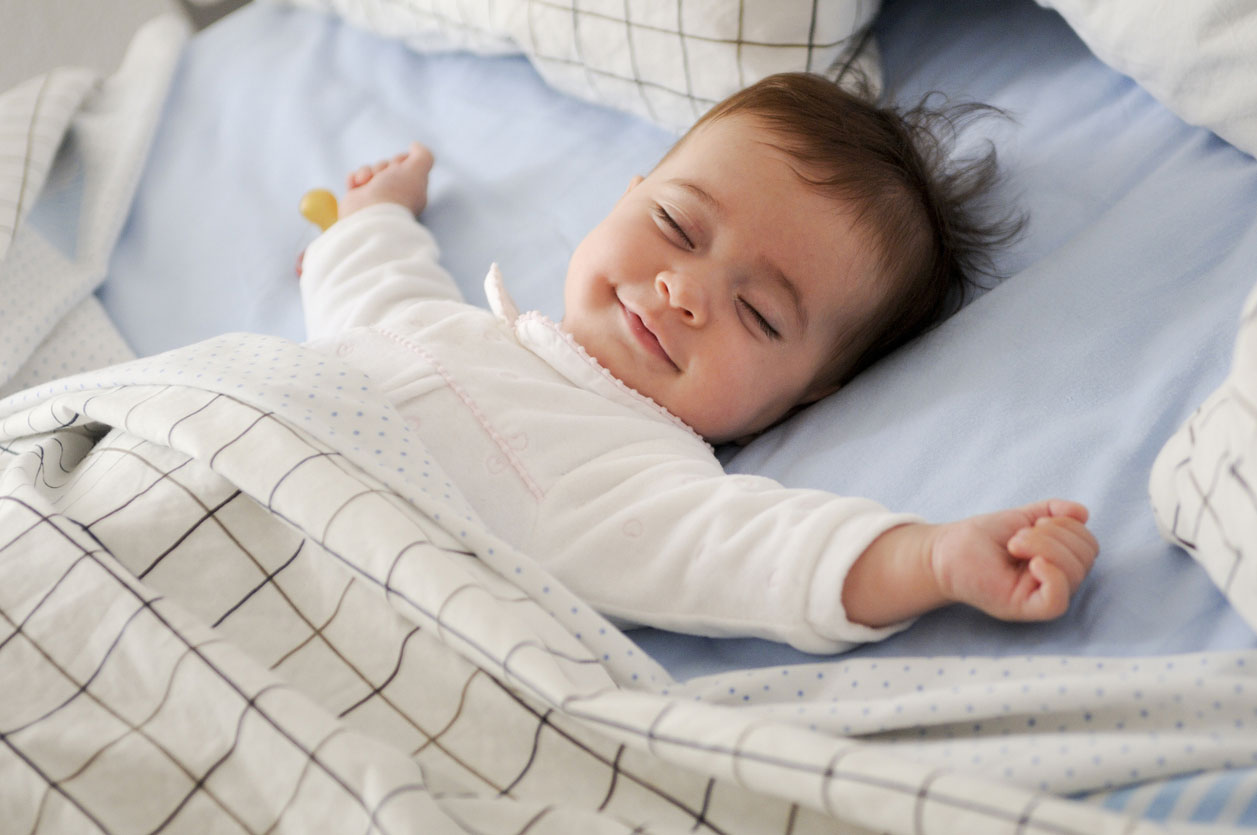
Sleep is a basic biological need. At the risk of putting you to sleep, here’s a short list of why sleep is so essential for our health:
- Sleep plays a vital role in the function of your brain and bodily systems. A lack of sleep actually disrupts emotional and intellectual function.
- Sleep helps regulate your metabolism and appetite. Lack of restful sleep may be associated with an increased risk of becoming overweight or obese since your body needs sleep to balance out your hunger and satiety hormones.
- Sleep supports the optimal function of your immune, hormonal, and cardiovascular systems. Lack of sleep promotes inflammation and can increase your risk for heart issues and hormonal imbalances.
- Sleep helps you live longer. A 2014 study published in Frontiers in Aging Neuroscience concluded that regularly getting enough sleep is a significant factor in achieving longer life spans.
A whole slew of things can interfere with healthy sleep patterns, including medical causes like heart or kidney disease, heartburn, or musculoskeletal disorders; psychological causes like anxiety and depression; and poor sleep “hygiene” (meaning “habits that can get you a good night’s sleep”).
How real are the consequences? It’s estimated that “drowsy drivers” are 20% more likely to get into a car accident. Industrial accidents are also more likely when workers are sleepy. Sleep deprivation has also been blamed for some of the most famous accidents in modern history, including the Exxon Valdez oil spill, the Chernobyl nuclear accident, and the Union Carbide Bhopal explosion.
How Much Sleep Should You Get?
Research shows that getting too little sleep — or too much sleep (yes, although less common, that can be a problem also!) — can raise your risk for heart disease, and even early death.
How much sleep is ideal? Studies indicate that a sleep “sweet spot” of around seven hours per night is optimal for the health and functioning of most adults. However, your mileage may vary based on your age, health, activity level, and genetic makeup.
As you get older, your body clock changes, and you actually require less sleep. For instance, newborn babies need 14-17 hours of sleep per day, and preschoolers need 10-13 hours. Teens typically require 8-10 hours per day.
Don’t you think it’s ironic that we need the most sleep when we’re youngest? Most kids I know don’t want to take a nap, and most adults wish they could fit one into their regular daily routine.
With the hustle and bustle of modern life, you probably won’t be surprised to hear that most people are struggling under a large and growing sleep debt. A 2013 Gallup poll found that 40% of Americans are sleeping fewer than seven hours per night. Apparently, we’re getting at least one hour less sleep on average than Americans did in the 1940s.
Even though sleep is incredibly important, approximately 70 million people in the United States, and 45 million in Europe, have at least one sleep disorder. These disorders can be short- or long-term disorders, caused by lifestyle and environmental factors, psychosocial issues, or medical conditions. Isn’t this all the more reason to figure out how to sleep better?
How Does Sleep Work?
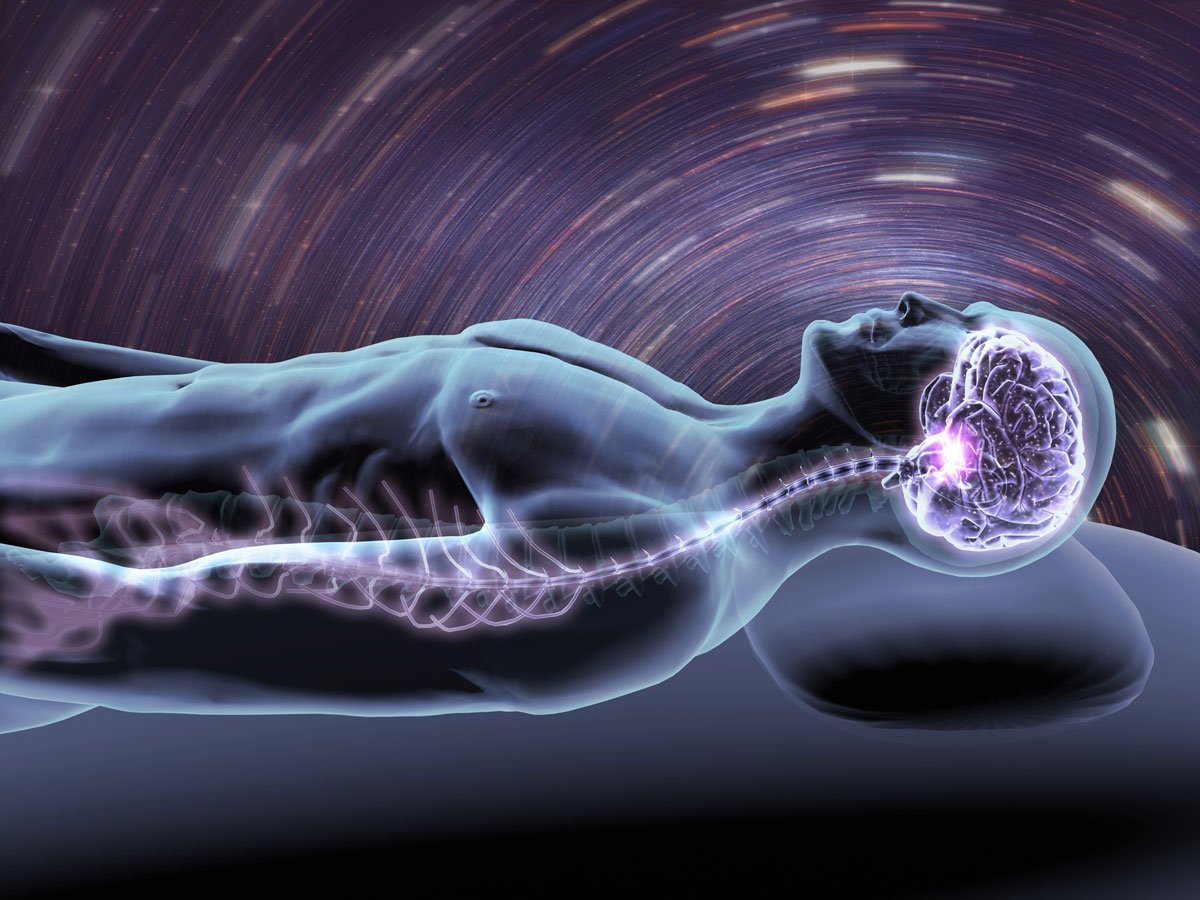
Sleep is a complex process inside your body. Everyone has an internal body clock, called a circadian rhythm, that keeps them on a somewhat regular sleep schedule. If you’ve noticed that your body tries to get you back on track when your sleep schedule goes awry — that’s your internal clock in operation. For instance, if you’re used to going to bed by 9 pm, but stay up until midnight, you might feel an extra drag in the morning. You might even notice that your body and brain naturally start to wind themselves down around your typical bedtime, preparing for sleep.
Your body thrives on exposure to light during the day and darkness at night. In the morning, your brain releases cortisol, which helps wake you up. At nighttime, when it’s dark out, it releases melatonin, which helps you relax and go to sleep. Both cortisol and melatonin are considered to be hormones, and they are critical to healthy sleep function, as are a number of neurotransmitters.
Some of the neurotransmitters that play a key role in your sleep pattern include:
- GABA, which is involved in your sleep/wake cycle and regulates neurons to get you ready to go to bed
- Glutamate, which is your primary excitatory neurotransmitter (meaning, it makes it more likely that certain neurons will fire) and helps regulate sleep duration.
- Acetylcholine, which helps to initiate rapid eye movement (REM) sleep, or the period of sleep during which you usually dream and have the most brain activity.
- Norepinephrine, which helps trigger waking up from REM sleep.
- Dopamine, which can downregulate melatonin and help you wake up from sleep.
- Adenosine, which builds up in your brain throughout the day and makes you sleepy toward the evening.
But neurotransmitters are just one piece of the puzzle in understanding how to sleep better.
Worst Foods for Sleep
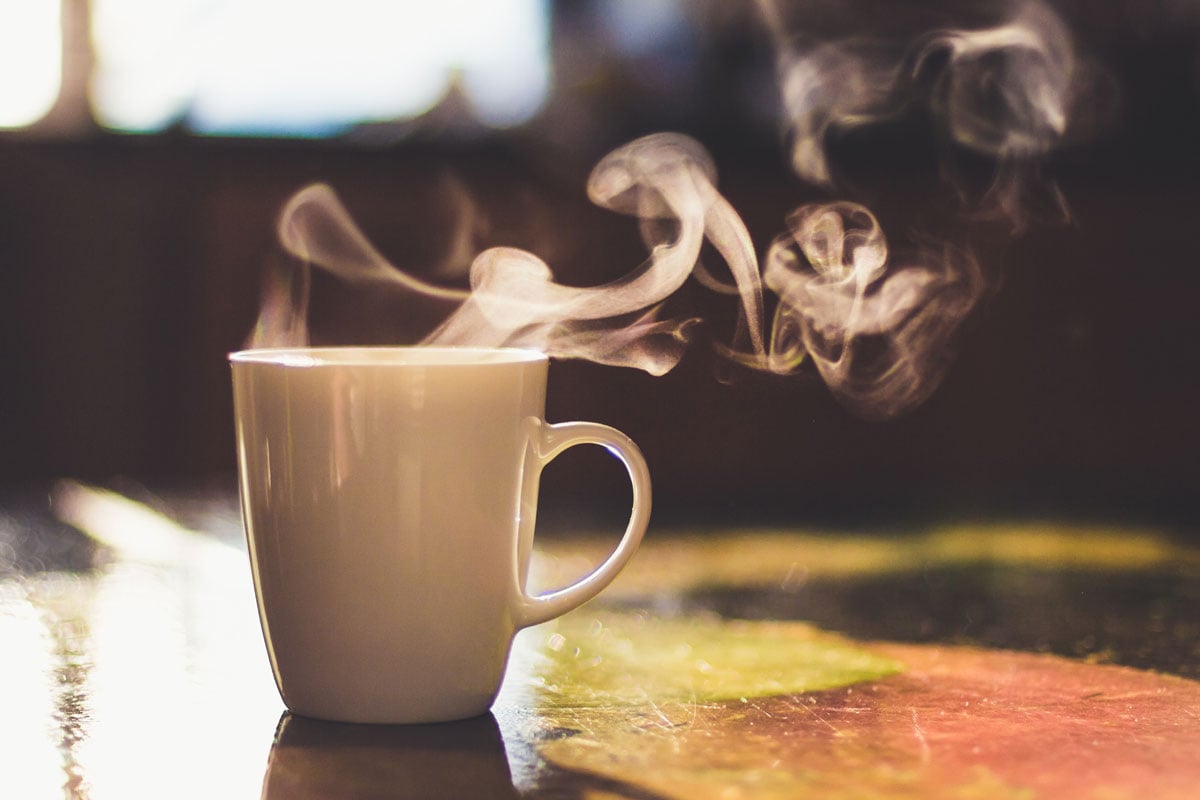
Just as what you put into your body can either make you feel energized or sluggish, it can also support or disrupt your sleep patterns. While some foods can wreak havoc on your sleep, others can have a therapeutic effect on your ability to fall asleep and enjoy a night of restful sleep.
Some of the worst foods and beverages for sleeping include caffeinated beverages — like soda, tea, energy drinks, and coffee. But sugar, alcohol, spicy foods, acidic foods, and foods that are high in saturated fat can all cause problems, too.
Caffeine and sugar, especially consumed later in the day, can keep you up at night and make it difficult to fall asleep. Caffeine is an adenosine antagonist, which means that while adenosine is trying to make you sleepy as the day goes on, caffeine works to do the opposite.
While alcohol in small amounts may help promote sleepiness in some people, research has shown that high alcohol intake is associated with more sleep disruption, lower quality of sleep, and shorter sleep duration. In fact, people who drink alcohol to help them fall asleep very often have great difficulty staying asleep through the night.
Spicy and acidic foods, like citrus or tomatoes, can cause indigestion or heartburn that make it difficult to get comfortable. These physical side effects may also wake you up at night. Spicy foods may also cause your body to heat up, making you uncomfortable when trying to go to bed.
Foods high in saturated fat, like meat and dairy products, can also make it hard to sleep. A 2016 study published in the Journal of Clinical Sleep Medicine examined correlations between daytime food intake and nighttime sleep among 26 adults, finding that low fiber and high saturated fat consumption resulted in lighter, less restful, and more interrupted sleep patterns.
Best Foods and Beverages for Sleep
What, then, are the best foods and beverages for sleep? They include:
- Nuts and seeds. Walnuts, especially, are high in melatonin and can increase your body’s melatonin levels.
- Beans and legumes are also natural sources of melatonin. Soybeans were found to have a significantly positive impact on sleep quality in a 2019 study of 440 sleep-deprived medical students when compared to other foods. Legumes are also a source of tryptophan.
- Fruits. Kiwi may improve sleep quality and duration among people with sleep problems. And cherries are known to significantly reduce inflammation and oxidative stress, improving sleep patterns in some people.
- Darky leafy green vegetables, which are full of lutein and zeaxanthin — carotenoids that are natural blue light filters. Furthermore, leafy greens are packed with micronutrients that may help promote sleep, like tryptophan, potassium, magnesium, fiber, iron, calcium, vitamin C, and complex carbs.
- Whole grains, which are a rich source of magnesium, a mineral that binds to GABA receptors and works as a natural muscle relaxant. Other good sources of magnesium include avocados, soybeans, bananas, nuts and seeds, and wheat germ, making them some of the best foods for sleep.
- Tart cherry juice, which has been studied for its potential to improve insomnia. A 2018 study suggests that tart cherry juice improves the availability of tryptophan and lowers inflammation, which can help you fall asleep.
- Tea, especially chamomile, peppermint, lavender, lemon balm, or passionflower. Teas can reduce inflammation and anxiety, calm your nerves, and act as a natural sedative. One study found that passionflower tea was as effective as the sleep medication Ambien at inducing sleep.
- Plant-based milks, especially warmed up, may be soothing at nighttime. Soy milk is a good source of tryptophan, which may help induce sleep. B vitamins, especially B6 and B12, found in some non-dairy milks, may also promote good sleep patterns.
- Plain water can help you stay hydrated and promote restful sleep. But rather than guzzling a bunch of water right before bed, it’s best to drink water throughout the day. That way, your bladder doesn’t turn the wee hours into the wee-wee hours.
Timing is Everything
And here’s an important key that many people don’t know about: The amount of time between your last meal or beverage, and when you go to sleep, can substantially influence how much rest you actually get at night. If you’ve ever eaten a heavy meal near bedtime, you may have noticed that it can make it harder to fall asleep. It also might wake you up during the night.
To sleep optimally, steer clear of eating for at least a few hours before bedtime.
Other Ideas on How to Sleep Better

While nutrition is a significant part of achieving your best sleep, it’s only one piece of the puzzle. To optimize sleep, there are several other things to prioritize in your regular routine.
1. Exercise
Exercise can help you sleep. Being physically active during the day, especially early on, can help expend excess energy, making it easier for your body to relax in the evening. Some people find that exercising too close to bedtime can actually wind them up and make it harder to go to sleep, so you will have to find what works best for you.Especially if you deal with stress during the day, exercise can alleviate feelings of anxiety, which may otherwise negatively impact your sleeping pattern. Similarly, a lack of regular physical activity can actually interfere with a good night’s rest. Of course, it works both ways: when you’re exhausted from a restless night, it’s harder to spend your limited energy on exercise. But it might be a good idea, anyway.
2. Temperature Control
The temperature at which you keep your bedroom can also make or break your sleep pattern. Keep the room cool, but not too cold. Some people find that using a weighted blanket — which can weigh between 5 and 30 pounds — can improve their sleep. Some studies suggest that weighted blankets can offer similar benefits to deep pressure therapy and can help to relax the nervous system. If you’re interested in trying a weighted blanket at night, the bedextra or truHugs organic cotton blankets are a couple of popular options.
3. Noise Reduction
Noise level can also inhibit your sleep, especially if you’re generally a light sleeper. To limit noise, try wearing earplugs at night. If you have tinnitus, and experience buzzing or ringing in your ears, try sleeping with a fan at night, or playing a continuous “white noise” noise track with a smartphone app. Sometimes steady noise can help drown out any extraneous noise that can disrupt your sleep.
4. Light Reduction
Having too much light can also disrupt your sleep or make it hard to fall asleep in the first place. Make your room as dark as possible, especially if you’re sensitive to light. Your brain responds to how dark a room is. Levels of melatonin increase when it’s darker, which can help you sleep. A couple of simple ways to do this are using a sleeping mask or installing blackout curtains on your windows to keep as much external light out as possible. And if you have any devices charging in your bedroom, make sure they aren’t emitting glows that keep the room from getting properly dark.
5. Have an Evening Routine
Having a regular routine can signal to your brain that it’s time to get ready for sleep. Just as children thrive on a bedtime routine, so do adults. Implement an evening routine that is realistic for you and repeat it every night, or as much as possible. Some ideas include drinking a small cup of hot tea, taking a warm shower or bath, practicing meditation or yoga, journaling, reading for a set amount of time, or using a diffuser. Scents like lavender or frankincense can help the body and mind relax, which may help you wind down before bed.
6. No Blue Lights Before Bed
In a culture where screens are constantly in our faces and hands, getting into a routine that excludes these at night has been shown to improve sleep. Blue light emitted from phones, laptops, and TV screens actually block the release of melatonin.
Researchers suggest cutting off your use of electronics at least 30 minutes before you actually go to bed. Instead, pick up a book you’ve been meaning to start reading, share conversation or cuddles with a loved one, or do an art project. And keep in mind that many smartphones have a blue light blocking filter that you can turn on.Blue light blocking glasses are also a great option and are available at a range of price points. One of the most premium options is Swanwick’s Blue Light Blocking Glasses, which you can find using this link. If you’re interested in getting a pair, they’ve offered Food Revolution Network readers 10% off with code FOODREV.
7. Have a Morning Routine
Just as a nighttime routine is important, getting your day started on the right foot can be equally important to establishing a healthy sleeping pattern.
When you wake up and remember dreams from the night, write them down! You may also enjoy journaling some thoughts first thing in the morning. Pour yourself a big glass of nourishing water in the morning and make this the first thing you drink each day.
Big contrasts at the beginning and end of your day can help. For instance, exercising at any time of day can be beneficial, but studies show that morning exercise promotes deeper sleep more than exercise at any other time of day. And sunlight in the morning can help put your day in a positive motion. Cold showers in the morning can also wake you up and help get you moving.
Make Sleep a Priority
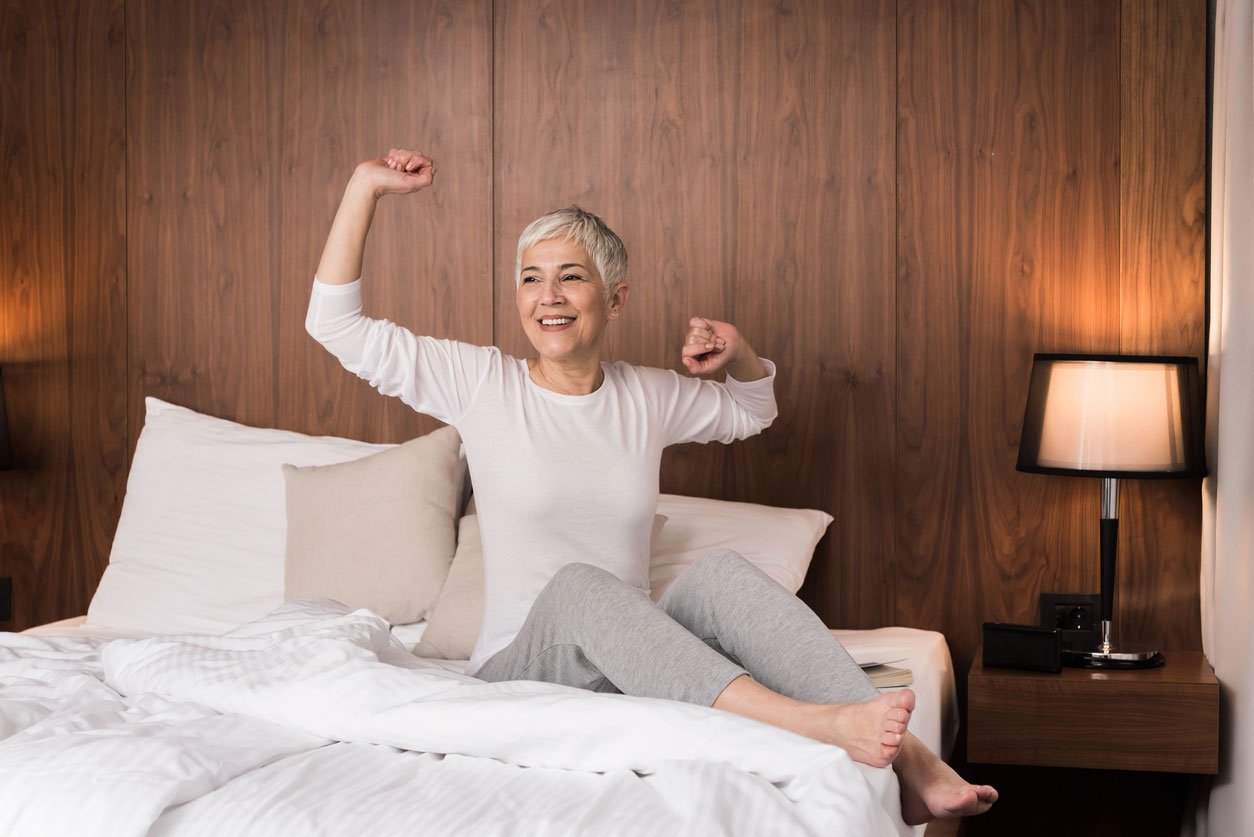
Sleep is essential for life, and your diet and lifestyle significantly impact how restful and nourishing your sleep is. Choosing healthy foods, creating a sleep-friendly atmosphere, and avoiding substances known to disrupt sleep are all good habits to get into to achieve your best sleep. And if you’re still having trouble sleeping well, remember that a healthy dose of compassion and self-love can make a world of difference, too!




